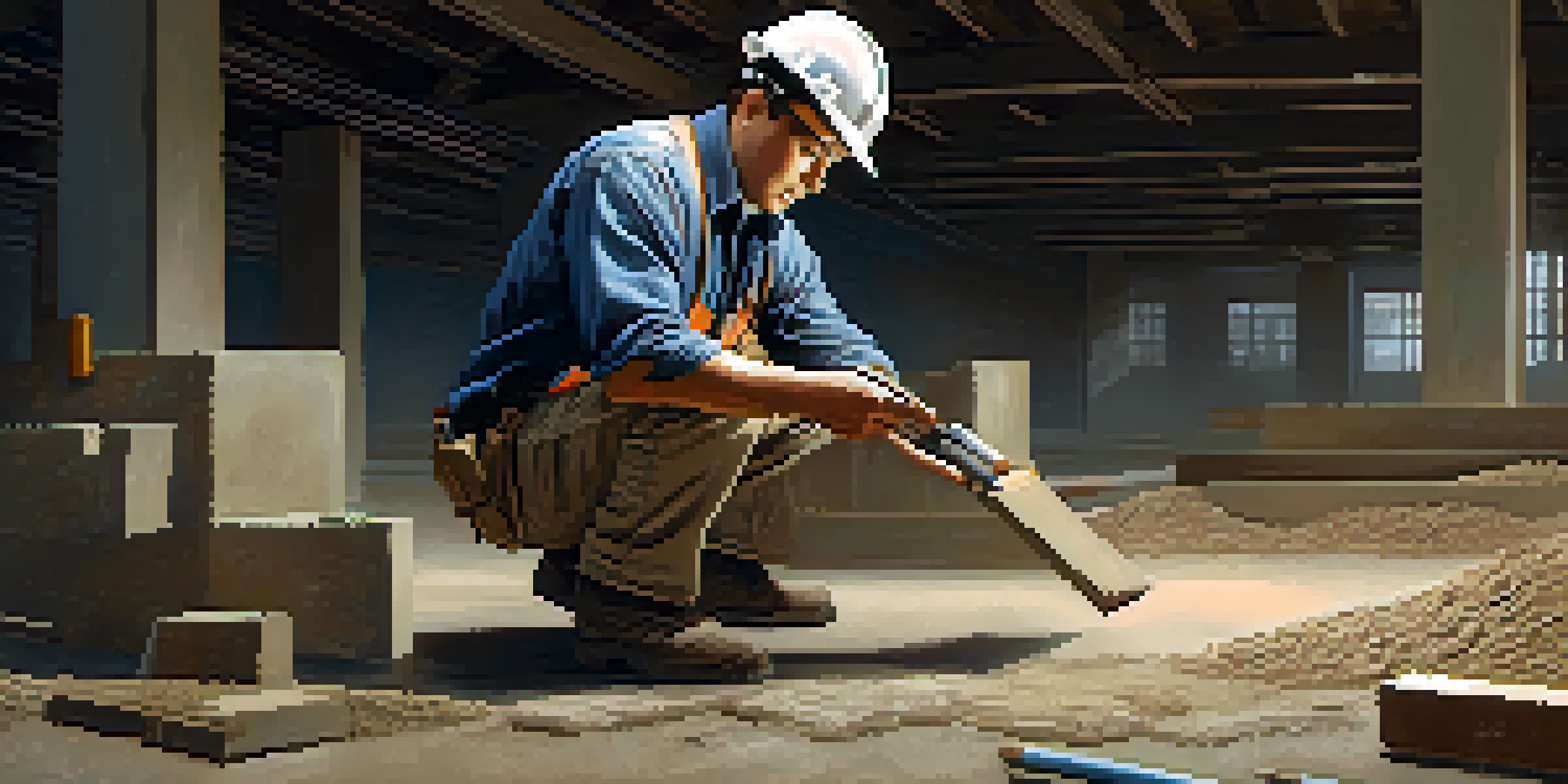Top Reasons to Conduct Inspections Pre and Post Renovation

Ensuring Structural Integrity Before Renovation Starts
Before diving into a renovation project, it's vital to assess the structural integrity of your space. Inspections can reveal underlying issues such as cracks, mold, or unstable foundations that could complicate your plans. Addressing these problems upfront can save you time and money down the line.
An ounce of prevention is worth a pound of cure.
Think of it like getting a health check-up before starting a rigorous exercise program. You want to ensure that your body is ready for the challenge ahead. Similarly, a thorough inspection prepares your property for the renovation work by identifying potential red flags.
By conducting these inspections, you not only enhance safety but also ensure that your renovation plans align with the actual condition of your property. It’s a proactive step that can lead to a smoother, more efficient renovation process.
Identifying Code Compliance Issues Early On
Building codes and regulations can be complex and vary by location, which is why inspections are crucial before renovations. A pre-renovation inspection can help identify any existing code violations that need to be addressed. This ensures that your renovation plans comply with local regulations from the get-go.

Imagine planning a big event without checking if your venue meets safety standards. It could lead to major setbacks or even fines! Similarly, understanding the code compliance of your property can prevent costly surprises later.
Ensure Structural Integrity First
Assessing structural integrity before renovations prevents costly surprises and ensures a smoother process.
By catching these issues early, you can avoid delays, extra costs, and the stress of having to redo work that doesn’t meet code. It’s all about setting a solid foundation for your renovation journey.
Budgeting Accurately with Pre-Renovation Inspections
One of the most significant advantages of conducting inspections before renovations is accurate budgeting. Inspections can uncover hidden issues that may require additional funds to fix. When you know what to expect, you can allocate your budget more wisely.
Quality means doing it right when no one is looking.
Think of it like planning a road trip; you wouldn’t set out without checking the condition of your vehicle. Knowing your property’s state helps ensure you have enough resources for the journey ahead. Being prepared means you won’t have to scramble for funds mid-project.
This foresight not only helps in creating a realistic budget but also allows for better financial planning. It minimizes the risk of unexpected expenses that could derail your renovation plans.
Enhancing Safety for Workers and Occupants
Safety should always be a top priority during any renovation project. Conducting inspections can help identify potential hazards, such as exposed wiring or unstable structures, ensuring that the work environment is safe for everyone involved. This proactive approach protects both workers and occupants.
Consider it like wearing a helmet while biking. It’s a simple precaution that can make a big difference. Similarly, ensuring that your renovation site is safe minimizes the risk of accidents and injuries.
Document Changes for Future Use
Keeping a detailed record of inspections and renovations helps streamline future projects and enhances property value.
By addressing safety concerns upfront, you foster a positive working atmosphere and demonstrate a commitment to the well-being of everyone on-site. It’s a win-win situation that sets the tone for a successful renovation.
Post-Renovation Inspections: Confirming Quality Work
After completing renovations, a post-renovation inspection is essential to confirm that everything has been done correctly. This inspection allows you to identify any defects or unfinished work before you move in or open your space to the public. It’s your opportunity to ensure that the final product meets your expectations.
Think of it as a final dress rehearsal before opening night for a play. You want to make sure every detail is perfect. A thorough post-renovation inspection provides peace of mind that your investment is sound.
By addressing any issues at this stage, you can enjoy your newly renovated space without worries. It’s about ensuring that your renovation dreams are fully realized in a safe and functional manner.
Documenting Changes for Future Reference
Another critical reason for conducting inspections is to document changes made during renovations. This documentation can be invaluable for future renovations or repairs. It serves as a record of what was done, ensuring that everyone involved is on the same page.
Imagine trying to assemble furniture without the assembly instructions. Without proper documentation, future work can become confusing and time-consuming. Having a detailed record of renovations helps streamline future projects.
Enhance Safety for All Parties
Conducting thorough inspections prioritizes safety for workers and occupants, fostering a positive renovation environment.
Additionally, this documentation can be beneficial when selling your property, as potential buyers appreciate knowing the history of improvements made. It's a way to showcase the value of your home.
Avoiding Disputes with Contractors
Inspections can also help prevent disputes with contractors. When both parties have a clear understanding of the work that needs to be done through documented inspections, it minimizes misunderstandings. This clarity fosters a more positive working relationship.
Think of it as having a clear map on a road trip; it helps everyone stay on course and avoid getting lost. Similarly, having inspections before and after renovations ensures that everyone is aligned on expectations and deliverables.

By establishing a transparent process, you can address concerns as they arise, leading to smoother communication and a more successful renovation experience.
Increasing Property Value Through Inspections
Lastly, conducting thorough inspections can significantly increase your property's value. A well-documented history of inspections and renovations can be a selling point for potential buyers. It shows that you've taken care of your property and invested in its upkeep.
Think of it as maintaining a classic car; regular check-ups and improvements can enhance its value over time. Similarly, regular inspections and renovations can elevate the appeal of your property in the market.
By ensuring quality work and addressing any issues promptly, you not only protect your investment but also potentially boost its resale value. It’s a smart strategy for any property owner.